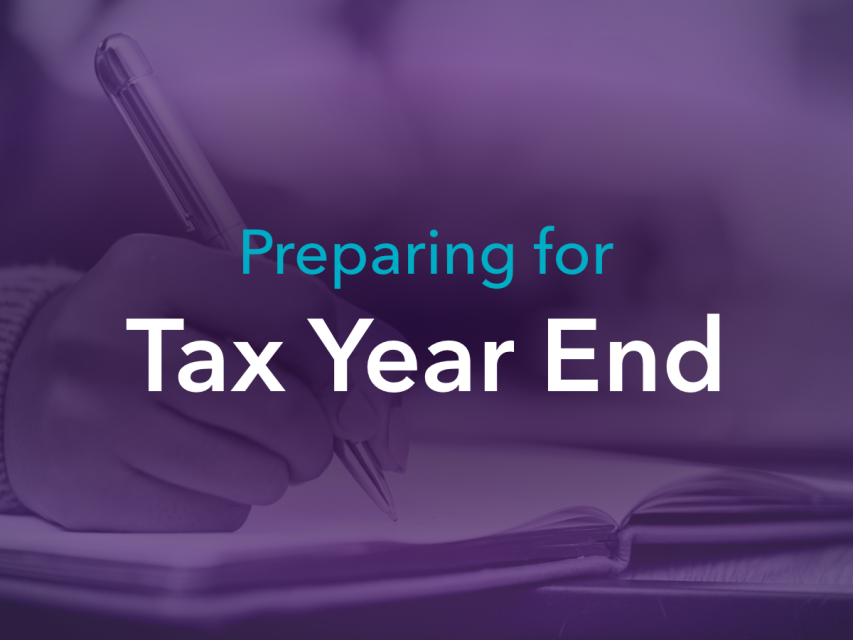Your guide to leaving wealth to loved ones
Planning how to leave wealth to your loved ones is one of the most thoughtful and impactful decisions you can make.
If you’re considering providing financial security for your family, supporting a favourite charity, or ensuring your wishes are respected, taking the time to plan your estate can bring peace of mind – both now and in the future.
However, navigating the many options and legal considerations involved in passing on your assets can feel overwhelming. From setting up Wills and trusts, to understanding Inheritance Tax and naming beneficiaries, there are many moving parts to consider. This article aims to help you make informed, confident decisions about your legacy, and you can also speak to your financial adviser for expert advice.
Understanding your options for leaving money
Drafting a comprehensive Will
Writing a Will is one of the most important actions you can take to protect your financial wealth and help determine which beneficiaries take on your financial legacy.
If you pass without a Will, there are certain quite inflexible rules which dictate how the money, property or possessions should be allocated. This is called dying ‘intestate’, and the rules are referred to as ‘intestacy rules’. Making a Will ensures you remain in control of your estate, ensuring a smooth transition of assets.
You can set down the basics of your plan early on, even before visiting a solicitor.
Conditional gifts in a Will
Leaving conditional gifts in a Will means that not only will your estate be used by your beneficiaries in a way that you would approve of, but they’ll only inherit your assets, money and belongings if they meet certain criteria set by you.
You can make the gift conditional on factors such as:
- The beneficiary reaching a certain age, such as 21. The money left to the beneficiary will be held on trust until they reach the specified age. Sometimes this may also require some information about what type of trust to set up in your Will
- Specifying that funds must be used on educational fees or a house deposit rather than everyday spending
If the beneficiary fails to meet the conditions stipulated in the Will, they may lose their entitlement to the gift.
Ultimately, setting conditional gifts is a personal decision and for many, can be seen as an attractive way of retaining an element of control over their estate.
Trusts
Trusts are legal entities that allow the person gifting an asset (the settlor) to set down in writing who can access that asset and when.
They are set up for a number of reasons, such as to control and protect family assets, for the benefit of someone who is too young or incapacitated to handle their affairs, or simply to pass on assets both in lifetime and in death.
If you want to leave assets to a child, a trust could be an effective way to do so, effectively holding assets until the child reaches adulthood, at which point they could access and use them how they wish. Assets can also remain in the trust depending on the trust set-up, and the beneficiary can then receive an income to support their financial security.
Unlike Wills, trusts can avoid probate, provide greater privacy, and allow more control over how and when your wealth is distributed. They are especially useful for managing complex estates or caring for vulnerable beneficiaries.
Discretionary trusts offer flexibility regarding provision for beneficiaries. Common uses include estate planning, asset protection and flexible family wealth management. These can be complex and also carry with them Inheritance Tax (IHT) charges in certain circumstances – it is always best to speak to your financial adviser before setting up a discretionary trust.
Bare trusts, meanwhile, allow the beneficiaries full access to the assets held within the trust once they turn 18 (16 in Scotland), and so can be used to pass on assets to minors once they reach the age of majority.
They are simple and straightforward to set up and administer, while the beneficiary has clear ownership, making tax and legal matters simpler.
Transfers into a bare trust may also be exempt from IHT, as long as the person making the transfer survives for 7 years after making the transfer.
Gifting money
Gifting money to loved ones can be an effective way to pass on your wealth, whether you want to help your child get onto the property ladder, boost your grandchildren’s savings account, or support a friend in need.
Each tax year, you can give away some money or possessions free of Inheritance Tax. How much is tax free depends on which allowances you use.
You can usually give money to without normally paying tax when:
- You give the gift at least seven years before you die
- You give the gift to your spouse, civil partner, or a registered UK charity
While you’re alive, you a have a £3,000 ‘gift allowance’ a year known as your annual exemption.
You’re allowed to roll over any of this unused gift allowance to the following tax year, but only for one tax year (excluding the small gift allowance).
The small gift allowance lets you make as many gifts as you want of up to £250 per person – as long as you haven’t used another allowance in favour of the same person. This means you can’t use the small gift allowance and the annual exemption to give assets worth £3,250 and still expect it all to be exempt from Inheritance Tax calculations.
Gifts for weddings or civil partnerships
You can give a tax free gift to someone who is getting married or starting a civil partnership, with an allowance of:
- £5,000 to a child
- £2,500 to a grandchild or great-grandchild
- £1,000 to any other person
You can also leave your residential home to your children. However, you need to be mindful of Inheritance Tax and when it applies. As a starting point, the ‘nil-rate band’ (NRB) is the amount up to which an estate has no Inheritance Tax to pay.
Each individual has their own nil-rate band which is £325,000 for 2025/26.
There is also an additional threshold called the ‘residence nil-rate band’ (RNRB). This is available when eligible residential property is left to direct descendants and provides an extra tax-free allowance of up to £175,000 (for 2025/26) on top of the £325,000 nil-rate band. This means that an individual can have up to £500,000 in their estate, including their residential property being left to a direct descendant, before Inheritance Tax is paid.
Pensions and death benefits
Pensions have long been a cornerstone of retirement planning in the UK. Understanding the death benefits attached to your pension plan can be vital in ensuring your loved ones are financially protected.
There are two main types of pension schemes:
- Defined Benefit (DB) pensions: Often known as final salary schemes, these pay a guaranteed income based on your salary and years of service. When you die, a reduced pension may be paid to a spouse, civil partner, or dependent. The amount and eligibility depend on the scheme’s rules.
- Defined Contribution (DC) pensions: These work more like a personal investment pot built up over time. Upon death, the remaining value can usually be passed on to a beneficiary, either as a lump sum or as an income stream, depending on your arrangements and their preferences.
Tax treatment of Defined Contribution death benefits
The tax implications can vary based on your age at death and how the pension is inherited:
- If you die before age 75: In most cases, your pension can be passed on tax-free, provided the benefits are paid within two years of death.
- If you die after age 75: Any income or lump sum your beneficiaries receive will be taxed at their marginal rate of income tax.
To ensure your pension is passed on according to your wishes, it’s essential to nominate your beneficiaries through your pension provider, ensuring they are set up in your Expression of Wish or Beneficiary Nomination form.
If you’ve chosen to take a flexible retirement income and you’re in pension drawdown when you die, your beneficiaries can typically take the remaining money left as a lump sum or set up a guaranteed income (an annuity) with the proceeds.
Please note, it’s not always possible for beneficiaries to use flexible retirement income to drawdown from the pension pot rather than taking a lump sum or annuity. It’s worth checking what death benefits different pension schemes offer as they may be able to move the pension to another provider to do this.
The Inheritance Tax position of pensions is due to change in 2027. Please speak to your financial adviser before making important decisions regarding your pension.
The Role of Inheritance Tax (IHT)
Inheritance Tax is a tax on the estate (the property, money and possessions) of someone who has passed.
There’s normally no Inheritance Tax to pay if either:
- The value of your estate is below the £325,000 threshold (as per the 2025/26 tax year)
- You leave everything above the £325,000 threshold to your spouse, civil partner, a charity or other eligible organisation
If your estate exceeds the available tax-free thresholds, 40% tax is applied to the excess. For example, if your estate is worth £700,000 and you have a £325,000 NRB, the taxable estate at £375,000 would be liable for Inheritance Tax at 40% – amounting to £150,000.
A few further considerations:
- If you leave your whole estate to your spouse or civil partner, no IHT is payable on your estate
- If one partner dies and hasn’t used their tax-free allowance, it can be passed on to the surviving partner. This gives them a higher threshold of up to £1,000,000 before IHT applies
- Of course, if you have a legally binding Will when you pass away then that will determine what happens to your assets
- If there is no Will (known as dying intestate) the current rules mean your spouse or civil partner will receive the first £270,000 of your estate, and half of whatever is remaining when you die. The rest will be split amongst any children, grandchildren and great-grandchildren.
How to prepare your estate
Preparing your estate means getting all your financial and legal affairs in order so that they can be managed smoothly. This could involve:
- Making a valid Will
- Creating or reviewing trusts
- Listing and valuing your assets
- Organising important documents
- Nominating beneficiaries
- Planning for digital assets
- Communicating your wishes
The importance of seeking advice
The complexities involved often require professional guidance. A legal or financial professional can help you to choose the most appropriate methods for transferring wealth and maximising tax efficiency, as well as adapting your plans over time as laws or personal circumstances change.
Final Thoughts
Leaving wealth to your loved ones is more than a financial decision – it’s an act of care, planning, and legacy.
With the right approach, you can ensure your assets are passed on smoothly, fairly, and in alignment with your values.
The Financial Conduct Authority do not regulate Will Writing, Tax Advice and Estate Planning. The guidance and/or advice contained within this blog are subject to the UK regulatory regime and is therefore primarily targeted at customers in the UK.
With investing, your capital is at risk. Investments can fluctuate in value and you may get back less than you invest. This material is not a personal recommendation or financial advice and the investments referred to may not be suitable for all investors.
Tax is subject to an individual’s personal circumstances, and tax rules can change at any time. Please note, this blog is not a recommendation or personal financial advice.
Pension eligibility and tax rules apply.
True Potential Wealth Management is authorised and regulated by the Financial Conduct Authority. FRN 529810. Registered in England and Wales as a Limited Liability Partnership No. OC356611.
True Potential Investments LLP is authorised and regulated by the Financial Conduct Authority. FRN 527444. Registered in England and Wales as a Limited Liability Partnership No. OC356027.
True Potential LLP is registered in England and Wales as a Limited Liability Partnership No. OC380771.





